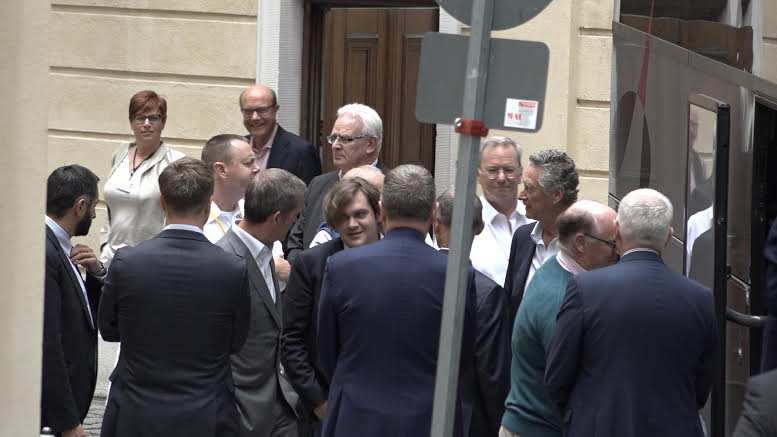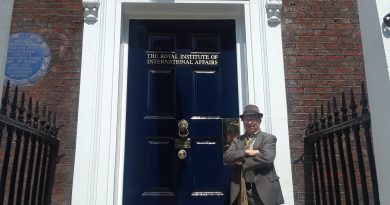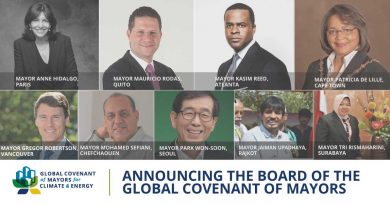Bilderberg’s 70th Meeting in 70 Years Covers ‘AI’ & 12 Other Key Topics for Private Global Governance
By Mark Anderson
The annual shadowy confab known as Bilderberg that took place in Spain from May 30-June 2 included secretive discussions on publicly announced but often vague topics, ranging from “Artificial Intelligence” (AI), to “China,” the “Middle East,” “NATO,” “Ukraine and the World” and “Russia” and others, totaling 13 topics in all. This 70th such meeting in 70 years, as always, took place behind locked and heavily guarded doors. This year’s five-star venue was the Eurostars Suites Mirasierra hotel in Madrid.
The Bilderberg Meetings, as they’re officially called, were seeded with CIA funds—as confirmed by British Professor Richard Aldrich—for the supposed innocuous purpose of maintaining and improving transatlantic relations in the post-World War II years. These gatherings of the uber-rich and strategically placed from the upper echelons of the private and public sectors, since their birth in 1954 at the Hotel de Bilderberg in The Netherlands, hence the name of the meetings, have become a continuum over the decades for several important ongoing geo-political, economic and, eventually, technological topics.
Of those 13 topics officially listed, the top two at the 2024 Bilderberg gathering covered AI (artificial intelligence)—listed simply as “State of AI” and “AI Safety.” AI, which goes back as far as the 2015 Bilderberg Meeting in Austria, and has been covered most years since then, joins the ranks of other highly frequent topics like China, which really took hold at Bilderberg’s 2016 confab in Germany and, in 2018 only, did not appear on the agenda. China also was listed for the Virginia 2012 meeting, the Denmark 2014 gathering, and twice at the Switzerland confab of 2011.
Another single-word topic, Russia, has been covered every year since 2017, and was listed in the discussion roster under the name “Putin 2.0” back in 2012. Ukraine made the list of hot topics in 2023 and 2024, and back in 2014—the very year that pro-EU and pro-NATO interests concocted a phony uprising to replace the Russian-leaning leadership of Ukraine with U.S.- and EU-backed stooges. They brought Ukraine to near-ruin internally, well before Russia’s military entered the country.
These nebulous one-word topics—combined with certain other topics being covered over the long haul, not all of them publicly released—clearly contradict the claim by the group’s organizers and its apologists that these meetings have always been a mere “retreat” for relaxing, consuming caviar, and engaging in informal discussions in order to maintain transatlantic relations in the world’s best interests.
Bilderberg’s official website states, “Various conspiracy theorists have expressed wild allegations about the purpose of the gatherings. While these claims lack any and all merit, we regret to see that many continue to flourish online and in social media groups.”
But others maintain that their goal has always been to establish the political, informational, academic, financial, monetary, industrial and technological networks and infrastructure with which to usher the West into a world government, largely through secretly established arrangements that appear to be unlawful.
A former member had this to say:
To say we were striving for a one-world government is exaggerated, but not wholly unfair,” Denis Healey, a founding member of the group, admitted to The Guardian in 2001, though he tried to make the whole thing sound humanitarian. “Those of us in Bilderberg felt we couldn’t go on forever fighting one another for nothing and killing people and rendering millions homeless, so we felt that a single community throughout the world would be a good thing.”
As the late British Member of Parliament Michael Meacher told this reporter and other news outlets outside the 2013 Bilderberg Meeting in Watford, UK, these elites do not go to such lengths to meet in secrecy, with such an intense concentration of financial, military, political and monarchal muscle behind sealed and heavily guarded doors, over the course of many years, “just to have a little chat.”
Rather, Meacher, who spoke out at that time on the floor of the House of Commons against Bilderberg, said it’s a shadowy “deal-making” conference that the common people have a right to know a lot more about.
All in all, Bilderberg’s recurring topics strongly indicate that devising world-consolidating strategies over the long-term, and nurturing the associated deep networking and cloaked deal-making to carry out those strategies, comprise Bilderberg’s core purpose. The ultimate objective is to privatize and supersede what we traditionally think of as “government.”



